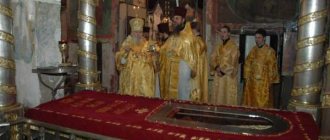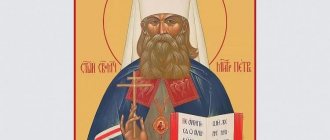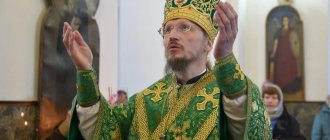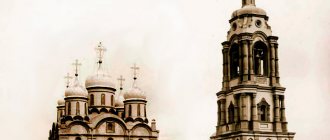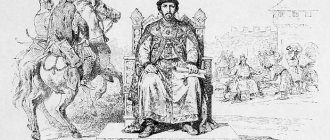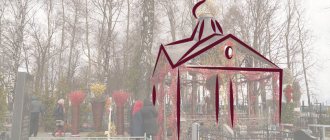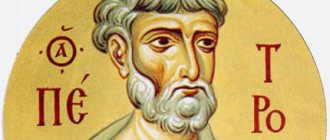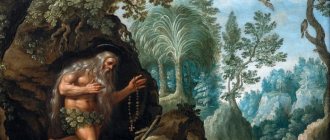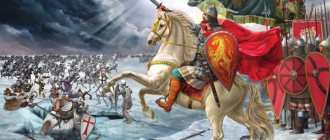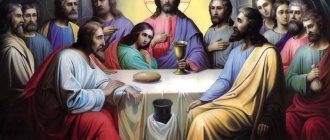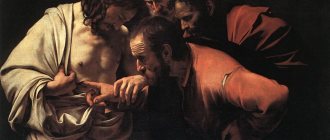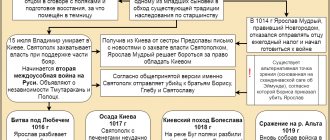| Portrait of Metropolitan Peter (Mogila) |
Peter (Grave)
(1596 - 1646), Metropolitan of Kiev, Galicia and All Russia, Exarch of the See of Constantinople, Archimandrite of Kiev-Pechersk, Saint Memory of December 31, December 22 (Romanian), in the Cathedrals of Vinnitsa, Volyn, Galicia, Kiev and Moldova Saints, as well as in the Cathedral of Saints of the Kiev Theological Academy (local KDAiS)
Born on December 21, 1596 in Suceava, the third son in the pious family of high-born Moldavian boyars Mogila (in modern Romanian transcription - Movilă), who at that time occupied the royal thrones of the Danube principalities. At baptism he was named in honor of St. Peter of Moscow, as he was born on the day of his memory. His father Simeon Mogila was the ruler of Wallachia in 1600-1602, and from 1606 until his death in 1607 - the ruler of Moldavia. In 1612, the Graves, after their defeat by Cantemir Murza, who took over the reign, had to flee to Poland, where they had strong and wealthy relatives.
He received his education at the Lviv fraternal school in a strictly Orthodox spirit, hostile to the union. He continued his education by traveling abroad, where he attended lectures at various universities - in particular, he took a course in verbal science and theology at the University of Paris.
He served in the Polish troops and distinguished himself in the battle of Khotyn. However, probably under the influence of the Kyiv Metropolitan Job (Boretsky), he decided to leave military service and take holy orders. Around 1624, he entered the Kiev Pechersk Lavra, where at that time many highly educated and active monks gathered, the translation of patristic books, the compilation and publication of works in defense of Orthodoxy were underway. In such an environment he completed his education.
With the blessing of Metropolitan Job and Archimandrite Lavra Zacharias (Kopystensky), at his own expense he sent several capable young people abroad to improve in the sciences.
Lavra Archimandrite
In 1627 [1], after the death of Archimandrite Zacharias, at the insistence of learned monks, he was elected archimandrite of the Lavra. Through his care, the Church of the Assumption of the Mother of God was renovated, the holy caves were decorated, the ancient Hermitage-Nicholas Monastery was returned under the control of the Lavra, the Goloseevskaya Hermitage was founded, and an almshouse was established at his expense.
Under his leadership, the condemnation of the “Apology” of Meletius (Smotrytsky) took place in 1628.
Being nominally subordinate directly to the Patriarch of Constantinople as a stauropegial “great archimandrite,” he was not subject to the Metropolitan of Kyiv. Peter was close to Metropolitan Job (Boretsky) - the latter, dying, left his library to Peter and appointed him executor. But with his successor, Metropolitan Isaiah (Kopinsky), Peter developed a less trusting relationship - according to some historians, hostile [2]. This confrontation may have been due to the fact that Peter took up the founding of a new Orthodox educational center in Kyiv, despite the already existing Kiev fraternal school.
Archimandrite Peter put a lot of effort into founding a new higher theological school at the Lavra - the first of its kind in the East Slavic lands. He appointed young men trained abroad as teachers, and also took scientists from the Lviv brotherhood. He organized the first dormitory for poor students in the Lavra, allocating several villages from his estate and Lavra volosts for the maintenance of the school. A new school “for the teaching of the liberal sciences in Greek, Slavic and Latin” opened in 1631. Soon, when the Kyiv brothers recognized him as the guardian and guardian of their school and subordinated it exclusively to the authority of the Patriarch of Constantinople, Peter united his Lavra school with the brotherly one. This work was blessed by Patriarch Kirill (Lukar) of Constantinople, Metropolitan Isaiah (Kopinsky-Borisovich) of Kiev, and approved in writing by Orthodox bishops and the most distinguished clergy and the Lavra brotherhood.
| Metropolitan Kyiv Peter (Tomb). Autographed drawing |
Ascension to the Kyiv See
By that time, the Polish heir to the throne, Prince Vladislav, showed himself ready to give the Orthodox the right to legal existence, having developed a corresponding bill in the Sejm commission. Archimandrite Peter, who was then in Warsaw, wrote from there to all Russians, so that they would not agree to accept the conditions set out in the draft, and convinced them to use the elected Diet to achieve full satisfaction of the demands. When the Sejm came, at which Vladislav was elected king on November 8, 1632, new conditions for the legalization of Orthodoxy were adopted, according to which, for the first time after the conclusion of the Union of Brest in the Polish-Lithuanian Commonwealth, the existence of the Orthodox Kyiv Metropolis and four dioceses was solemnly recognized at the state level. One of the conditions for the legalization of the Orthodox Church was the dismissal of many previously elected bishops and the election of new ones. At the same time, at the Sejm, Metropolitan Isaiah was declared defrocked and the Orthodox delegates elected Peter (Mogila) as the new metropolitan, retaining the Lavra archimandriteship for him. This was done in the context of a new war with the Moscow state, in which Vladislav needed the support of the Orthodox Russian population of the Polish-Lithuanian Commonwealth, and the former Orthodox hierarchy, which had suffered the hardships of persecution against Orthodoxy in the Polish-Lithuanian Commonwealth, leaned towards the Russian Orthodox Church and Moscow [3]. In addition, Archimandrite Peter pointed out to the Orthodox delegates of the Sejm that the fight against the Uniates was now just flaring up, and the decrepit Metropolitan Isaiah would not be able to wage it energetically enough.
Immediately at the Sejm, already as an elected metropolitan, Peter began to petition for the transformation of the Fraternal Epiphany School he had established into an academy. The Roman Catholic and Uniate clergy, as well as some of the noblest members of the Diet, strongly opposed this. But the king did not dare to antagonize the Orthodox and, at the persistent request of Peter, gave him the privilege, where, instead of an academy, the school was named a collegium with an extensive course in theology and philosophy.
The removal of Metropolitan Isaiah was legalized by the church by the fact that the Patriarch of Constantinople Kirill (Lukar) sent the elected Bishop Peter an archpastoral blessing for the metropolis [4]. However, among the Orthodox there were also supporters of the removed Metropolitan Isaiah, who blamed Peter for personal ambition. Therefore, Peter arranged his consecration not in Kyiv, but in Lvov. Here, on St. Thomas Week, April 28, 1633, he was consecrated bishop with the elevation to the rank of Metropolitan of Kyiv and Galicia, and the former Metropolitan Isaiah was “degraded.” The ordination was led by the Lvov bishop, using the powers of the exarch of the Patriarch of Constantinople. Then the newly installed metropolitan went to Kyiv, where upon entering he was greeted with two famous panegyrics - from the Lavra brethren and the fraternal school. Upon entering Kyiv, he had to ban and depose the priests who stood for Isaiah, and forcibly transport the former metropolitan himself to the Lavra.
| Metropolitan Peter (Tomb). Fragment of the painting of the Kyiv Church of the Savior on Berestov (1644) |
Kyiv Metropolitan
Upon his accession to the metropolitan throne, he began to organize the Kyiv Collegium, which invariably enjoyed his special attention and received the name Mogilyanskaya in his honor. She was completely settled and provided for, although she suffered oppression from the Kyiv governor. The Kiev-Mohyla College became the first higher educational institution in the East Slavic lands. In order to confront modern Roman Catholic scholarship on the same level, Metropolitan Peter borrowed the entire structure of the new school from Latin-Polish models, which he thus instilled in the South Russian Orthodox environment. Subsequently, the Metropolitan also opened a lower school in Vinnitsa.
He returned and restored a number of ancient Kyiv shrines. He returned the St. Sophia Cathedral and the Vydubitsky Monastery, previously captured by the Uniates. He restored and built the Church of the Savior on Berestov and the Church of the Three Saints - the latter was given to the Bratsky Monastery. In 1635, the remains of the Tithe Church were excavated and cleared of ruins, under the ruins of which the remains were found, identified at that time as the relics of Equal-to-the-Apostles Prince Vladimir. Metropolitan Peter planted a linden tree near the ruins that same year. Funds for the restoration of churches and monasteries came from the Lavra, from the metropolitan’s personal property, from donations from pious people, from grants from the Tsar of Moscow.
He paid great attention to the publication of church books, and demanded that no books be printed without comparing them with Greek originals. The Missal, the Colored Triodion and the Breviary with important instructions for clergy were significantly revised, expanded and published. Divine services under the Metropolitan began to be performed especially solemnly and splendidly. Metropolitan Peter actively introduced and restored Greek prayers and rites among the Slavic people. In his Trebnik, for example, the prayer of St. Sophronius of Jerusalem for the Great Blessing of Water was introduced; in his Lenten Triodion, for the first time in the Slavic world, a complete Synodik appeared on the Sunday of Orthodoxy - one of the most significant doctrinal documents of the Orthodox Church. However, at the same time, under Roman Catholic influence, a number of rites that were new to the Orthodox Church were introduced, the most notable of which were the Lenten passions in remembrance of the Passion of Christ and the lecture introduced into the Trebnik [5].
Under Bishop Peter, Righteous Juliania, Princess Olshanskaya, was glorified after the saint appeared to him and reproached him for his lack of faith and neglect of her relics. He made efforts to glorify the Pechersk saints throughout the church, and under him the Patericon of Pechersk was compiled.
| St. Peter (Mogila), Metropolitan. Kyiv. Romanian icon (early 21st century) |
Theologian
Among the numerous theological works of Metropolitan Peter, a special place was occupied by the defense of the Orthodox against accusations of Protestantism and the expression of the correct teaching in catechetical form. Confession of Faith in 1629
"under the name of the Patriarch of Constantinople Cyril (Lukar) caused confusion in the Orthodox community, aggravated the polemics of Roman Catholics against Orthodoxy, and prompted Metropolitan Peter to respond.
A special occasion was the denunciation of the writings of the apostate from Orthodoxy Cassian Sakovich, who accused Orthodoxy of adopting reformist opinions. In response to this libel, Metropolitan Peter took an active part in the compilation of the accusatory collection “ Λίθος, or Stone
,” as well as in the preparation of a religious treatise - the so-called.
“ Confessions of Peter Mogila
” (see more details).
In 1640, Metropolitan Peter convened a Local Council in Kyiv, at which Sakovich’s work was refuted and, after some corrections, the prepared Orthodox confession of faith was adopted. At the Council of Iasi in 1642, this confession was further adjusted and sent for translation and verification to the Eastern patriarchs. In 1645, the Metropolitan published one of the editions of the Confession
"in Kyiv, after which a number of new editions appeared in different languages and became widely circulated as an important doctrinal document of the Orthodox Church.
Metropolitan Peter was fully fluent in Latin and Greek. He led a strictly ascetic life. He was in awe of the Kiev-Pechersk Lavra and considered it a place of the special presence of God.
Demise
Before his death, he bequeathed to the Kyiv College his library, real estate acquired for it and a significant amount of money, and ordered its mentors to live by his rules and commemorate him every Thursday. He bequeathed a lot to the Lavra and other monasteries and churches that he built from the ruins. He died on December 31, 1646, on the night of 1647. According to his will, he was buried in the crypt of the Great Assumption Church of the Kiev Pechersk Lavra, under the left choir in the middle part of the temple.
The body of Metropolitan Peter rested at the burial site until the Second World War. In November 1941, the Great Lavra Church was blown up, and the explosives were placed near the burial place of the saint. The coffin with the remains was completely destroyed; only silver plates with the family coat of arms and epitaph were preserved, which were found during excavations in 1982 by an archaeological expedition led by V. Kharlamov.
| St. Peter (Mogila), Metropolitan. Kyiv. Romanian icon (early 21st century) |
Origin and family
On December 21, 1596, a son, Petru, was born into the family of Moldavian boyars Movile; his name was given in honor of the Moscow Metropolitan Peter.
- 1596 is the year of the adoption of the Union of Brest, according to which the Western Ukrainian part of Orthodoxy came under the rule of the Roman Catholics.
- 1596 - the time of accession to the Moldavian throne of Simeon Movile or Mogila.
- Boyar Simeon, the father of the future Metropolitan of Kyiv, ruled Wallachia for seven years at the beginning of the 17th century, and then in 1607 became the ruler of Moldova.
- In 1612, Cantemir Murza conquered Moldova, the boyars of Movile fled to relatives in the Polish-Lithuanian Commonwealth, under the tutelage of Mikhail Vishnevetsky, the ruler of the left bank of Ukraine.
Saint Peter Mohyla
Peter graduated from the Lviv fraternal school, which taught the basics of Orthodoxy, and to continue his education he went abroad, visiting various universities, studied Latin, and as a result chose a military career.
He was a participant in the Battle of Khotyn between the Poles and Ottomans. For the handsome, rich man, warrior and intellectual, 1624 was a turning point. He renounces the world and becomes a resident of the Holy Dormition Kiev-Pechersk Lavra, where, together with the monks, he endures all the persecution from the Polish authorities.
Seal
The Assumption Church complex in Lviv, known as the "Romanian ("Wallachian") Church".
Breviary published by Peter Mogila large catechism Peter Mogila “Arktos of the Russian sky...” (mention of the Councils of Kijo Mohilaeni) For more than 20 years, “Mogila” played a leading role in book publishing in Ukraine.[8] He was one of the first to publish in Ukrainian. Mogila and his followers in the Lavra and the Mogila Collegium took the first steps in formulating the foundations of the modern Russian and Ukrainian languages. The spread of the Ukrainian language in print was part of Ukraine's broader efforts to fight for sovereignty and cultural self-preservation. Mohyla wanted to preserve the identity of the Ukrainian nation, which was under enormous pressure from the Polish and Lithuanian regimes. He initiated the publication of sermons for the laity in Ukrainian, biblical texts in Church Slavonic, and scientific books in Ukrainian, Polish, Greek and Latin. Mogila wrote several books that were distributed in Ukraine, Belarus, Poland, Muscovy, Romania and Georgia. One of its most important publications was the first Orthodox Catholic. Catechesis
universal (1640), written by him at the request of all Orthodox Catholic churches.
After it was approved by several Ecumenical Patriarchs of Constantinople, it became the fundamental document of Church teaching in the Orthodox world.[9][10]:106 In the 17th and 18th centuries, this book had 25 editions. His other famous works included the Breviary
or Euchologion (1646). It resembled an encyclopedia in which all Ukrainian church rites and services were systematized. At the same time, he did a lot to preserve the purity of the Orthodox rite.[11]
Ten years earlier he published the Anthology
in which he emphasized the need for teachers to find unique approaches to each student when teaching as their abilities vary. Applying the same expectations to all students may not be the most effective teaching method. Mogila emphasized the need for students to reflect and understand rather than simply repeat scientific, religious, and moral truths.[10]:107 In this and other works, Mogila emphasized the need for the younger generation to use reason rather than emotion in the pursuit of goals.
In his Triodion (1631), Mogila expressed his political views on what an ideal ruler should look like. He argued that a person should maintain peace with his neighbors; defend their lands during war; The ruler is not only obliged to make laws, but, above all, he must limit his own powers.
Project of a Polish nobleman of the Greek religion
(1645) Latin manuscript, first printed in 1928, presents his "Project of Union", consisting of his own recognition of the divine primacy of the Roman Pontiff, while noting that the legal rights of the Eastern patriarchates should be respected by the West.[12]
Taking Holy Orders
Personal communication with the Kyiv Metropolitan Job Boretsky influenced the further fate of Peter Mogila, who decided to devote his life to the Orthodox Church by taking holy orders.
Having been the archimandrite of the Kiev Pechersk Lavra since 1627, he is subordinate to the Patriarch of Constantinople and bears the title of great archimandrite. After the death of Vladyka Job, he is the executor of the entire spiritual inheritance of the Vladyka, including the richest library.
The new archbishop decided to found a new educational Orthodox center in Kyiv, which caused opposition from Isaiah Kopinsky, who defended the primacy of the Kyiv fraternal school. In 1632, the Polish king Sigismund III dies, Archbishop Mohyla is invited as part of a delegation from Kyiv to a meeting of the Sejm to elect a new king, Vladislav the Fourth.
Icon of Peter Mohyla, Metropolitan of Kyiv
Father Peter justified the mission entrusted to him, he managed to convince the new king to recognize the Orthodox dioceses and metropolises as legitimate, to stop all prohibitions and oppression against Orthodox believers, having received a diploma, according to which it was allowed:
- freely to profess the Orthodox faith;
- perform the Sacraments;
- carry out restoration of temples and build new churches;
- create fraternities;
- open schools and colleges;
- set up almshouses.
The Orthodox people and clergy received the right to elect a metropolitan, into whose jurisdiction all monasteries and churches were transferred.
Important! On November 1, 1632, thanks to the prince’s upbringing and the subtle diplomatic gift of Peter Mohyla, an official decree was issued approving the independence of Orthodoxy in Ukraine.
In 1633, the priest was ordained metropolitan, gathering around him all those who were not indifferent to the fate of Orthodoxy in Ukraine.
In 1635, with the blessing of Father Mogila, the restoration of the Tithe Church, the reorganization of the Kiev Pechersk Lavra school, and the construction of an educational institution in Vinnitsa began.
In 1634, a Moscow school was founded, where monks of the Kyiv Lavra taught. Thanks to the efforts of Metropolitan Peter Juliana, Princess Olshanskaya was glorified among the righteous; he made great efforts to perpetuate the names of the Pechersk saints in the created Patericon of Pechersk.
Read about Orthodox saints:
- Gregory Sinait
- Boniface of Tarsus
- Zacchaeus the Righteous
Akathist written to Peter Mogila
An akathist was written to Peter Mogila, which is read on Sunday after the day of his veneration. The Akathist can be read at home in front of his icon.
Akathist:
Kontakion 1
Let us praise the chosen governor and shepherd, the glorious son of the glorious famous family of Volodars of Moldova, Saint Peter, as in the days of fierce persecution he stood up and in his God-inspired labors imprinted the purity of the holy Orthodox faith. And now, with your prayers, save us from troubles and misfortunes, and with love we call to you:
Rejoice, Holy Hierarch Father Peter, zealous defender of the Orthodox faith.
Ikos 1
You lived in imitation of the angels in your zeal for the defense of faith and the salvation of human souls. Through your God-inspired labors you have fertilized the church field. For this reason, filled with the spirit of love for you, we cry out with gratitude as follows:
Rejoice, Holy Hierarch Father Peter, for the sake of serving the Church of Christ, you left behind wealth, nobility and earthly honors.
Rejoice, you who have exposed the errors of Latinism in your writings.
Rejoice, you who founded the Kiev-Mohyla College for spiritual enlightenment.
Rejoice, you who restored the churches and monasteries desecrated by the Uniates with your own means.
Rejoice, Holy Hierarch Father Peter, who wrote the liturgical books.
Rejoice, you who have affirmed the Orthodox confession of faith by the Council of Ecumenical Patriarchs and Hierarchs.
Rejoice, Holy Hierarch Father Peter, zealous defender of the Orthodox faith.
Kontakion 2
Seeing the pious parents, Governor Simeon and Princess Margarita, their child gifted with wisdom and diverse knowledge from childhood by the Almighty and illuminated by strong love for the Church of Christ, they sang to God about him in joy: Alleluia.
Ikos 2
You have enlightened your mind with Divine teachings, Saint Father Peter, having rejected the vanity of the honors of this world, you have defended the Orthodox confession of your faith. For this reason, you appeared as the God-wise heir not only of the royal throne, but also of the monastic work. We, in you, are a chosen vessel of God’s grace, seeing and crying out in emotion:
Rejoice, prefacing the feast of the Nativity of Christ with your birth.
Rejoice, in the year of your birth the family of Mogil entered the throne of Moldova.
Rejoice, you were born on the day of memory of St. Peter.
Rejoice, having appeared as a worthy imitator of the heavenly patron.
Rejoice, for the sake of love for the Church and her shrines you worked with zeal.
Rejoice, Holy Hierarch Father Peter, zealous defender of the Orthodox faith.
Kontakion 3
The power of God's grace strengthened you, when, surrounded by Uniates and Catholics, you fearlessly confessed and defended your Orthodox faith, and before the Polish kings you pleaded for freedom and rights. We, knowing this about the strength of the spirit and your zeal, sing to God: Alleluia.
Ikos 3
Having undoubted faith and a pure thought in the field of the church, you worked tirelessly for the sake of spiritual enlightenment and the salvation of souls. We marvel at the spiritual fruits you bear, marvel at your self-sacrifice and exploits and learn from them, gratefully crying out to you like this:
Rejoice, in a time of troubles you were named archimandrite of the Kiev-Pechersk Lavra.
Rejoice, thou who returned many estates and lands of the Kiev-Pechersk monastery from captivity.
Rejoice, you who multiply earthly and spiritual blessings in the monastery of saints.
Rejoice, you have worked diligently to the venerable and God-bearing fathers of the Kiev-Pechersk.
Rejoice, you protected the Kiev-Pechersk monastery from adversity by prayer to the Mother of God.
Rejoice, in gratitude for the help of the Most Holy Lady, you created a prayer service.
Rejoice, Holy Hierarch Father Peter, zealous defender of the Orthodox faith.
Kontakion 4
You endured a storm of slander and human rebellion, but you were not afraid, O holy Father Peter, with Divine love, defeating all the machinations of enemies and evil people, in every place and at every hour, glorifying God, you sang to Him: Alleluia.
Ikos 4
Hearing and seeing your many virtues, strong and undoubted faith, immaculate purity, unfeigned love, the Orthodox hierarchs unanimously elected and solemnly consecrated you as metropolitan of Kiev. Seeing you as a God-wise shepherd and a good and blameless builder of the house of God, with hope for your prayers we appeal to you as follows:
Rejoice, you can replace the royal scepter with the metropolitan staff.
Rejoice, not eclipsed by your rapid march up the stairs of the church rank of spiritual ascent.
Rejoice, you who always exalt the interests of the Church of Christ above all earthly things.
Rejoice, you who have imprinted the Orthodox confession of the Apostolic Church in your works.
Rejoice, your family bowed even to the Polish kings with true piety.
Rejoice, you have appeared as a worthy descendant of the best sons of the legendary family of Mogil.
Rejoice, Holy Hierarch Father Peter, zealous defender of the Orthodox faith.
Kontakion 5
The God-bearing luminary appeared to all Christians, Saint Father Peter, enlightening the Divine horizon to this day with His teachings, showing the faithful the right paths and teaching everyone in the spirit of love and truth to sing to the Triune God: Alleluia.
Ikos 5
Seeing the people of Orthodoxy, your great deeds in all piety and purity offered to God and your labors until bloody sweat in the enlightenment of those darkened by passions, they recognize in you, Saint Father Peter, a strong shield and visor, and in the days of sorrowful circumstances and sinful wanderings, they cry out to you like this:
Rejoice, to serve with your blessing the passions you formed and strengthened in the Great Lent.
Rejoice, having set forth the liturgical rites in your Trebnik.
Rejoice, and to this day your rule is to serve on Wednesdays the Akathist to the Dormition of the Mother of God in the Pechersk Lavra - preserved by the Lord.
Rejoice, you who enlighten many people through book publishing.
Rejoice, having spread the books of liturgy throughout the earth.
Rejoice, for through your prayers you have made your descendants servants of God.
Rejoice, Holy Hierarch Father Peter, zealous defender of the Orthodox faith.
Kontakion 6
You were a preacher of the Orthodox faith, imitating the holy Apostles in zeal, building the temples of God and monasteries, wisely appointing Orthodox elders, teaching people good brotherhood and Christian living, so that everyone with one heart and mouth would sing with you to God: Alleluia.
Ikos 6
The unfading light of the knowledge of God shone in your God-loving soul, lifting you to the heights of spiritual perfection. With the same light, we enlighten you with a grateful cry of blue:
Rejoice, founder of the monastic monastery in Golosievo.
Rejoice, you who laid the spiritual foundation for it.
Rejoice, you created a church in it for the holy martyr John of Sochava.
Rejoice, in that church there are many particles of holy relics and the Lord’s Cross.
Rejoice, you who come to this skete for monastic deeds.
Rejoice, you have established a spiritual garden in him.
Rejoice, Holy Hierarch Father Peter, zealous defender of the Orthodox faith.
Kontakion 7
Although it is not forbidden for you to ascend in spirit to the mountainous villages, Holy Hierarch Father Peter, in the future world you lived above-worldly with your soul, fighting a good fight to the end, adding labor to labor, tirelessly singing to God with dignity and righteousness: Alleluia.
Ikos 7
In a new monastery, in a deserted place, imitating the exploits of the ancient hermits, you labored, Holy Hierarch Father Peter, and in the same way teach us to achieve a quiet refuge from everyday voyages, calling to you like this:
Rejoice, Holy Hierarch Father Peter, who set an example of monastic abstinence.
Rejoice, you who celebrate the Divine Liturgy daily.
Rejoice, the Lord has turned water into wine through your prayers in confirmation of the power of Orthodoxy.
Rejoice, you who have made many prostrations to God and His saints.
Rejoice, you who spent sleepless nights in your prayers.
Rejoice, secretly wearing chains on your body.
Rejoice, Holy Hierarch Father Peter, zealous defender of the Orthodox faith.
Kontakion 8
You thought of yourself as a wanderer and a stranger in this fleeting life, Holy Hierarch Father Peter, mentally elevating your soul to the heights above. We, seeing humility and deeds to overcome the world, the flesh and the devil, learning from your example, always sing to the glorified God who helps you in the Trinity: Alleluia.
Ikos 8
Having been completely filled with love for God and your neighbors, Saint Father Peter, arranging salvation for everyone, did not seek for yourself, but you lived for many benefits and you rested holy and righteous in the Lord. And now at the Throne of the Most High you do not abandon your intercession for your flock. We, accepting your help, glorifying you, gratefully call the following:
Rejoice, you have lifted the heavy burden of defending Orthodoxy from Catholics and Uniates.
Rejoice, having endured many toils, sorrows and misfortunes more than once.
Rejoice, having received slander and slander even from those of the same faith.
Rejoice, you who preserved courage and selflessness in difficult circumstances.
Rejoice, upholding the purity of the Orthodox faith.
Rejoice, having preserved unwavering piety and firm confession of the Orthodox faith to the end.
Rejoice, Holy Hierarch Father Peter, zealous defender of the Orthodox faith.
Kontakion 9
Every age and every class, seeing your zeal and labors, prays to Saint Father Peter to deliver you from all troubles, sorrows and misfortunes in this present age. And in the future, we will be conquered by your love, and in the village of the righteous we will sing to God with you: Alleluia.
Ikos 9
You have surpassed the Vetians, who have spoken many things with much spiritual power. You have revealed God's wisdom, greatness and power to the ignorant, instructing them on the path of salvation. People, seeing your vigilant care for them, constantly cry out to you like this:
Rejoice, you who have endured numerous labors to restore the Kyiv Metropolis.
Rejoice, you who zealously cared for your flock.
Rejoice, freed Saint Sophia of Kyiv from Uniate captivity.
Rejoice, your holy temple adorned and renovated with icons.
Rejoice, and after your death you protected Saint Sophia from alien attacks.
Rejoice, you who remained incorruptible and unburied in the Sophia Temple for more than two months.
Rejoice, Holy Hierarch Father Peter, zealous defender of the Orthodox faith.
Kontakion 10
You have inherited eternal salvation, O holy Father Peter, by laying down your soul for your verbal sheep. For this reason, you have been sanctified and you have been honored with unspeakable mercy, with the Angels and all the saints in the heavenly Kingdom to sing to God: Alleluia.
Ikos 10
You have appeared to us as an insurmountable wall, Holy Hierarch Father Peter, reliably protecting everyone who resorts to your heavenly intercession from enemies, visible and invisible. And now protect the monasteries, cities and our Orthodox country from wolves in sheep's clothing and all guile, deceit and destruction. Let us lead your zeal and strength in defending the Orthodox faith in the hope of your everlasting help, and boldly cry out as follows:
Rejoice, having learned from your parents to stand firm in faith and piety.
Rejoice, you who have appeared as a benefactor and patron of poor churches and monasteries.
Rejoice, you worked diligently in the improvement of the Assumption Kiev-Pechersk Monastery.
Rejoice, ordained Metropolitan of Kyiv in the Assumption Church in the city of Lvov.
Rejoice, having found earthly repose in the Assumption Church of the Kiev Pechersk Monastery.
Rejoice, you who bequeathed the inheritance left from your parents to theological schools.
Rejoice, Holy Hierarch Father Peter, zealous defender of the Orthodox faith.
Kontakion 11
In our all-merciful singing, let us praise the Lord God, who gave us you, the champion and teacher of the holy Orthodox faith, who was zealous for the salvation of our souls. Taught by you, Holy Hierarch Father Peter, the right to believe the truths of the Gospel, let us sing to the glorified God in the Trinity: Alleluia.
Ikos 11
We see you, the luminous lamp of the unquenchable saint, Father Peter, burning brightly on the Divine horizon. Enjoying the unspeakable bliss, you pour out the rays of grace from the Divine in secret to us who exist in the darkness of unreason. For this reason, trusting in your prayers, in deep emotion we honor you, the saint of God, with the title of tits:
Rejoice, chosen vessel of the Holy Spirit.
Rejoice, invincible warrior of Christ.
Rejoice, numbered among the host of saints.
Rejoice, glorified by people and God.
Rejoice, vigilant prayer book of those who honor you.
Rejoice, for you who dwell in the glory of the saints.
Rejoice, Holy Hierarch Father Peter, zealous defender of the Orthodox faith.
Kontakion 12
The grace given to you from God, knowing you well, Saint Father Peter, we know you - a zealous prayer book and intercessor for the salvation of our souls. For this reason, we ask and pray to you: ask the All-Merciful God to grant forgiveness for our sins, affirmation of the Orthodox faith, in every good deed of help, to homes, monasteries, cities and towns, blessings, and always sing in joy to God who glorifies you: Alleluia.
Ikos 12
Singing your many and wonderful virtues, we honor your memory, good shepherd and servant of Christ, Holy Hierarch Father Peter, unceasingly remember us at the Throne of the Lord and always cry out to you with love:
Rejoice, raised by unceasing prayer to the heights of the thought of God.
Rejoice, constantly abiding in fasting and prayer.
Rejoice, tireless preacher of the truth of the Gospel.
Rejoice, unshakable pillar of the Orthodox faith.
Rejoice, for you have preserved your verbal flock from soul-destroying wolves.
Rejoice, you who did not abandon the monastic deeds at the pulpit of the saint.
Rejoice, Holy Hierarch Father Peter, zealous defender of the Orthodox faith.
Kontakion 13
O all-praised and admirable servant of God and warrior of Christ, Holy Hierarch Father Peter, accept from us sinners and indecents this prayer which we earnestly bring to you, and by your constant, favorable intercession to God, deliver us from sudden death, from all troubles and misfortunes and eternal torment. Protect the churches, monasteries, villages and our Orthodox country from the wickedness and malice of foreigners, from the deceit of schismatics, atheists and heretics, so that together with you and all the saints we may sing to God forever: Alleluia, alleluia, alleluia.
This Kontakion is read three times, then Ikos 1 and Kontakion 1.
By leaving a comment, you accept the user agreement
Death and veneration
On January 1, 1647, in the full bloom of his strength, Saint Mogila suddenly went to the Lord, was buried in the Kiev Pechersk Lavra, and on March 22, it was decided to transfer the remains of the saint to the Sophia monastery. For three months, the relics of the metropolitan remained incorrupt; the place of his burial became the Great Pechersk Cathedral Church, the place indicated in the will of the saint.
Metropolitan Peter Mohyla canonized as a Local Saint
In November 1941, Kyiv was captured by the Germans, who blew up the Great Lavra Church, and along with it the grave of the saint was blown up.
In 1982, during excavations, silver plates were found, but which depict the family coat of arms of the Movile family and the epitaph.
The Holy Fathers, the saints, through their life example, are the guides of the Orthodox Christians remaining on earth to Heaven. Reflecting on the events of today, you understand that history develops in turns, in each of which the hearts of people are the battlefield of the devil with the Creator.
On December 8, 2005, Patriarch of Moscow and All Rus' Alexy II blessed January 13 as a day of honoring the memory of St. Peter Mohyla, who stood up for the defense of Orthodoxy in the 17th century, when Orthodox Ukraine was squeezed by the Muslim Porte and the Catholic Polish-Lithuanian Commonwealth.
Sources
- Orest Subtelny, Ukraine: A History, University of Toronto Press, 1988
- (in Ukrainian) Ukrainian pedagogy in personalities - XIX century / Edited by O.V. Sukhomlinskaya / basic handbook for students of higher basic mortgages, in two books // “Libid”, - K., 2005, book. 1., side 100–110
- (in Ukrainian) Guide to the history of Ukraine. Per ed. I. Pidkova and R. Shusta. - K.: Geneza, 1993.
- (in Ukrainian) Gaidai L. History of Ukraine in persons, terms, names and concepts. - Lutsk: Vezha, 2000.
